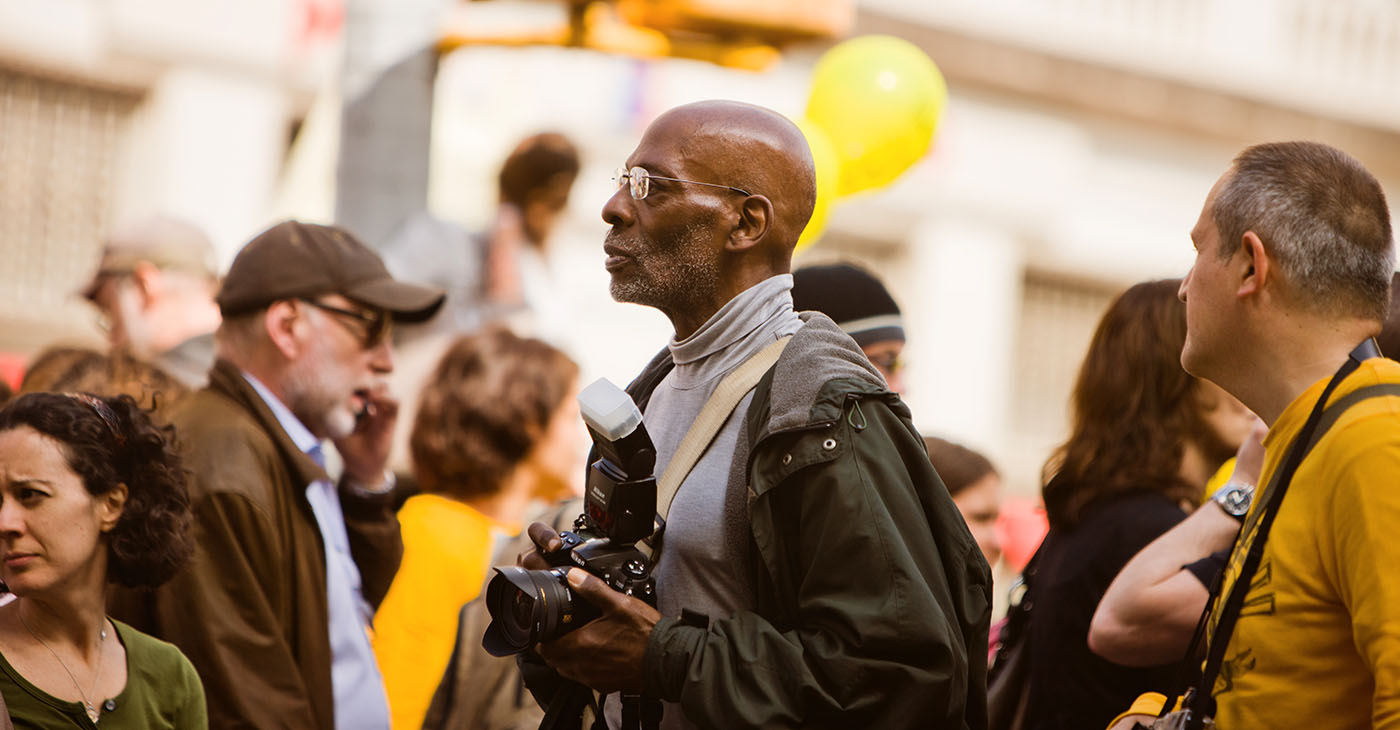Black History
Eight Black Media Outlets Win Over $5 Million in Grants
The six Black-owned media organizations targeting predominantly Black audiences that received grants are: California Black Media ($400,000); The Black Voice News in Riverside County ($100,000); L.A. Focus ($96,000) in Los Angeles County; Pace News in Los Angeles County ($95,150); The Precinct Reporter in Los Angeles, San Bernardino and Orange counties ($88,000); The San Francisco Bay View ($85,000); The Sac Cultural Hub in Sacramento County ($80,000); and Indian Voices in San Diego County ($59,741).

By California Black Media Staff
Eight Black-owned media organizations serving African American audiences across California are among 46 ethnic media news outlets awarded over $5 million in grants by the state.
The grant program is a collaboration between the California State Library and the California Commission on Asian and Pacific Islander American Affairs. It was created to support media outlets serving communities where hate crimes are likely to happen.
The funding will also help raise awareness about a related program: the Stop the Hate campaign that the California Department of Social Services has been spearheading with an initial investment of $20 million over the last year.
The campaign funds community-based organizations working to reduce hate crimes and promote intercultural and interracial cooperation and understanding.
“Crimes targeting victims because of their race or ethnicity, nationality, religion, sexual orientation, gender or a disability have no place in the state of California,” said Gov. Gavin Newsom.
The six Black-owned media organizations targeting predominantly Black audiences that received grants are: California Black Media ($400,000); The Black Voice News in Riverside County ($100,000); L.A. Focus ($96,000) in Los Angeles County; Pace News in Los Angeles County ($95,150); The Precinct Reporter in Los Angeles, San Bernardino and Orange counties ($88,000); The San Francisco Bay View ($85,000); The Sac Cultural Hub in Sacramento County ($80,000); and Indian Voices in San Diego County ($59,741).
According to the California State Library the grants will allow ethnic media outlets to hire or contract with “specialized reporters, fellowships, and internships at ethnic media outlets, news briefings and roundtables, digital and social media content, community gatherings and partnerships with grassroots organizations and Community Based Organizations.”
“We live in the state with the most racial, ethnic and cultural diversity in the United States. Yet, the deep tensions and misconceptions among us can trigger violence and rip our communities apart,” said Regina Brown Wilson, executive director of California Black Media (CBM).
“This funding is necessary because it equips media organizations with resources we need to educate, inform and connect the communities we serve, encouraging honest conversations, which are believe are opportunities to teach each other and learn from each other,” Wilson continued.
The grant program is a part of the Asian and Pacific Islander Equity Budget, a three-year investment of $166.5 million allocated to address the sharp increase in hate incidents.
“The California Asian American & Pacific Islander Legislative Caucus (API Caucus) and I pushed for these funds to help strengthen California’s more than 350 ethnic media outlets,” said Assemblymember Phil Ting (D-San Francisco). “We’re looking forward to subsequent grant awards being even more helpful to more ethnic media outlets around the state.”
Joe Bowers, a Los Angeles County-based researcher, will be working on identifying multicultural communities vulnerable to hate crimes that Black-owned newspapers in the state serve. He says he looks forward to providing data that will be key to helping CBM’s partner publications target their audiences with information that elevates and promotes interracial and cross-cultural relationships in their communities.
“There have been a number of demographic shifts in the state. It is critical for media to understand who their audiences are, where those people live, who they live next to, and what the potential challenges and opportunities may be,” Bowers continued.
Several supporters and news publications said they are pleased with the intention of the program and support the scaling up of it over the next few years.
Most publications are expected to kick off their programs over the next month.
Activism
Oakland Post: Week of March 28 – April 1, 2025
The printed Weekly Edition of the Oakland Post: Week of March 28 – April 1, 2025

To enlarge your view of this issue, use the slider, magnifying glass icon or full page icon in the lower right corner of the browser window.
Activism
Report Offers Policies, Ideas to Improve the Workplace Experiences of Black Women in California
The “Invisible Labor, Visible Struggles: The Intersection of Race, Gender, and Workplace Equity for Black Women in California” report by the California Black Women’s Collective Empowerment Institute (CBWCEI), unveiled the findings of a December 2024 survey of 452 employed Black women across the Golden State. Three-fifths of the participants said they experienced racism or discrimination last year and 57% of the unfair treatment was related to incidents at work.

By McKenzie Jackson, California Black Media
Backed by data, a report released last month details the numerous hurdles Black women in the Golden State must overcome to effectively contribute and succeed in the workplace.
The “Invisible Labor, Visible Struggles: The Intersection of Race, Gender, and Workplace Equity for Black Women in California” report by the California Black Women’s Collective Empowerment Institute (CBWCEI), unveiled the findings of a December 2024 survey of 452 employed Black women across the Golden State. Three-fifths of the participants said they experienced racism or discrimination last year and 57% of the unfair treatment was related to incidents at work.
CBWCEI President and CEO Kellie Todd Griffin said Black women have been the backbone of communities, industries, and movements but are still overlooked, underpaid, and undervalued at work.
“The data is clear,” she explained. “Systemic racism and sexism are not just historical injustices. They are active forces shaping the workplace experiences of Black women today. This report is a call to action. it demands intentional polices, corporate accountability, and systemic changes.”
The 16-page study, conducted by the public opinion research and strategic consulting firm EVITARUS, showcases the lived workplace experiences of Black women, many who say they are stuck in the crosshairs of discrimination based on gender and race which hinders their work opportunities, advancements, and aspirations, according to the report’s authors, Todd Griffin and CBWCEI researcher Dr. Sharon Uche.
“We wanted to look at how Black women are experiencing the workplace where there are systematic barriers,” Todd Griffin told the media during a press conference co-hosted by Ethnic Media Services and California Black Media. “This report is focused on the invisible labor struggles of Black women throughout California.”
The aspects of the workplace most important to Black women, according to those surveyed, are salary or wage, benefits, and job security.
However, only 21% of the survey’s respondents felt they had strong chances for career advancement into the executive or senior leadership ranks in California’s job market; 49% felt passed over, excluded from, or marginalized at work; and 48% felt their accomplishments at work were undervalued. Thirty-eight percent said they had been thought of as the stereotypical “angry Black woman” at work, and 42% said workplace racism or discrimination effected their physical or mental health.
“These sentiments play a factor in contributing to a workplace that is unsafe and not equitable for Black women in California,” the report reads.
Most Black women said providing for their families and personal fulfillment motivated them to show up to work daily, while 38% said they were dissatisfied in their current job with salary, supervisors, and work environment being the top sources of their discontent.
When asked if they agree or disagree with a statement about their workplace 58% of Black women said they feel supported at work, while 52% said their contributions are acknowledged. Forty-nine percent said they felt empowered.
Uche said Black women are paid $54,000 annually on average — including Black single mothers, who averaged $50,000 — while White men earn an average of $90,000 each year.
“More than half of Black families in California are led by single Black women,” said Uche, who added that the pay gap between Black women and White men isn’t forecasted to close until 2121.
Alameda County
Trump Order Slashes Federal Agencies Supporting Minority Business and Neighborhood Development
The latest executive order targeted several federal agencies, including the Minority Business Development Agency (MBDA) and the Community Development Financial Institutions Fund, ordering that their programs and staff be reduced “to the minimum presence and function required by law.” The executive order targeted more agencies that Trump “has determined are unnecessary,” the order stated.

By Brandon Patterson
On March 14, President Trump signed an executive order slashing the operations of two federal agencies supporting growth in minority business and neighborhoods as he continued his attacks on programs supporting people of color and on the size of the federal bureaucracy.
The latest executive order targeted several federal agencies, including the Minority Business Development Agency (MBDA) and the Community Development Financial Institutions Fund, ordering that their programs and staff be reduced “to the minimum presence and function required by law.” The executive order targeted more agencies that Trump “has determined are unnecessary,” the order stated.
The MBDA’s mission is to “promote the growth and global competitiveness” of minority business enterprises, or MBEs. In 2023, according to its website, the agency helped MBEs access $1.5 billion in capital and facilitated nearly $3.8 billion in contracts awarded to minority business enterprises. It also helped MBEs create or sustain more than 19,000 jobs nationwide. Similarly, the CDFI Fund supports economic growth in under-invested communities by providing funding and technical assistance to local CDFIs, including banks, loan funds, and credit unions, that support community development projects in cities across the country. In 2023, the fund supported more than 1,400 local CDFIs across the country, including more than 80 in California — among the highest number for any state in the country.
The MBDA has local satellite business centers operated by organizations that support minority clients with services such as business consulting, contract bid preparation, loan packaging, and accessing capital funding. The San Francisco Bay Area business center is San Jose, operated by San Francisco-based organization Asian, Inc. Meanwhile, local Oakland CDFIs supported by the federal CDFI fund since 2021 include Habitat Community Capital, TMC Community Capital, Gateway Bank Federal Savings Bank, Beneficial State Bancorp, Inc., and Main Street Launch.
“It is clear that the hollowing out of the CDFI Fund and MBDA is not being ordered because those programs have failed in their mission,” the CEO of Small Business Majority John Arensmeyer, a national organization that advocates for small businesses, said in a statement on Saturday. “Instead, it is yet another case of President Trump using DEI as a club to eviscerate programs that seek to level our economic playing field.”
Congresswoman Lateefah Simon also slammed the decision in a statement to the Oakland Post. “As a member of the House Small Business Committee who represents multiple CDFIs in CA-12, I believe Trump’s gutting of operations at the Minority Business Development Agency and at the Community Development Financial Institutions Fund is a direct attack on small businesses, communities of color and other underserved communities,” Rep. Simon said. “Both the MBDA and the CDFI Fund were created with bipartisan support to help historically underserved communities and small businesses — and both programs have helped to dramatically change the material realities of people and bolster entrepreneurship in the U.S. There is no logic to this decision. The point is discrimination and cruelty.”
-

 #NNPA BlackPress4 weeks ago
#NNPA BlackPress4 weeks agoTarget Takes a Hit: $12.4 Billion Wiped Out as Boycotts Grow
-

 Activism4 weeks ago
Activism4 weeks agoUndocumented Workers Are Struggling to Feed Themselves. Slashed Budgets and New Immigration Policies Bring Fresh Challenges
-

 #NNPA BlackPress4 weeks ago
#NNPA BlackPress4 weeks agoBREAKING Groundbreaking Singer Angie Stone Dies in Car Accident at 63
-

 #NNPA BlackPress4 weeks ago
#NNPA BlackPress4 weeks agoNAACP Legend and Freedom Fighter Hazel Dukes Passes
-

 Arts and Culture4 weeks ago
Arts and Culture4 weeks agoBeverly Lorraine Greene: A Pioneering Architect and Symbol of Possibility and Progress
-

 #NNPA BlackPress4 weeks ago
#NNPA BlackPress4 weeks agoTrump Kicks the Ukrainian President Out of the White House
-

 #NNPA BlackPress4 weeks ago
#NNPA BlackPress4 weeks agoApple Shareholders Reject Effort to Dismantle DEI Initiatives, Approve $500 Billion U.S. Investment Plan
-

 Activism3 weeks ago
Activism3 weeks agoOakland Post: Week of March 5 – 11, 2025
























































